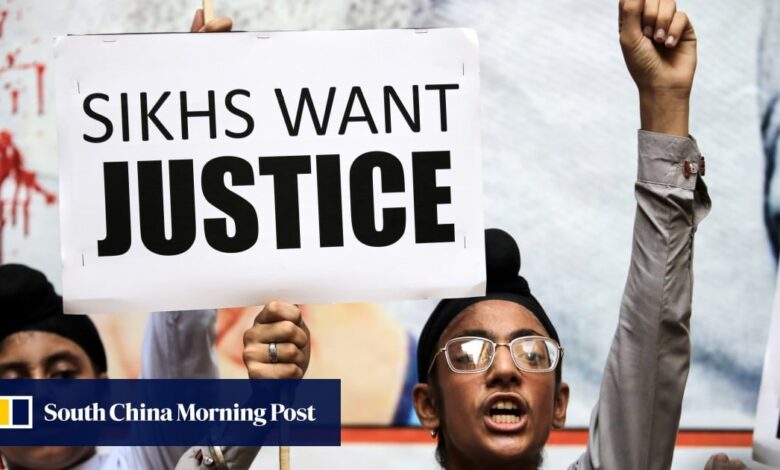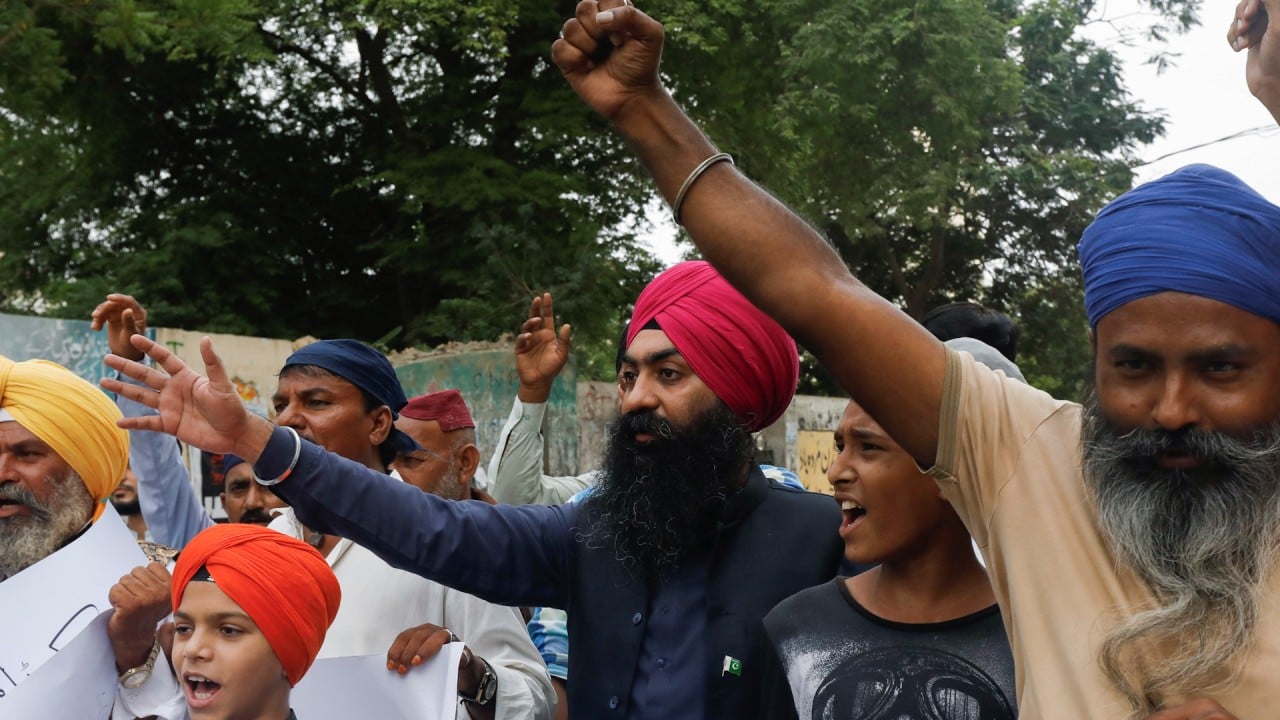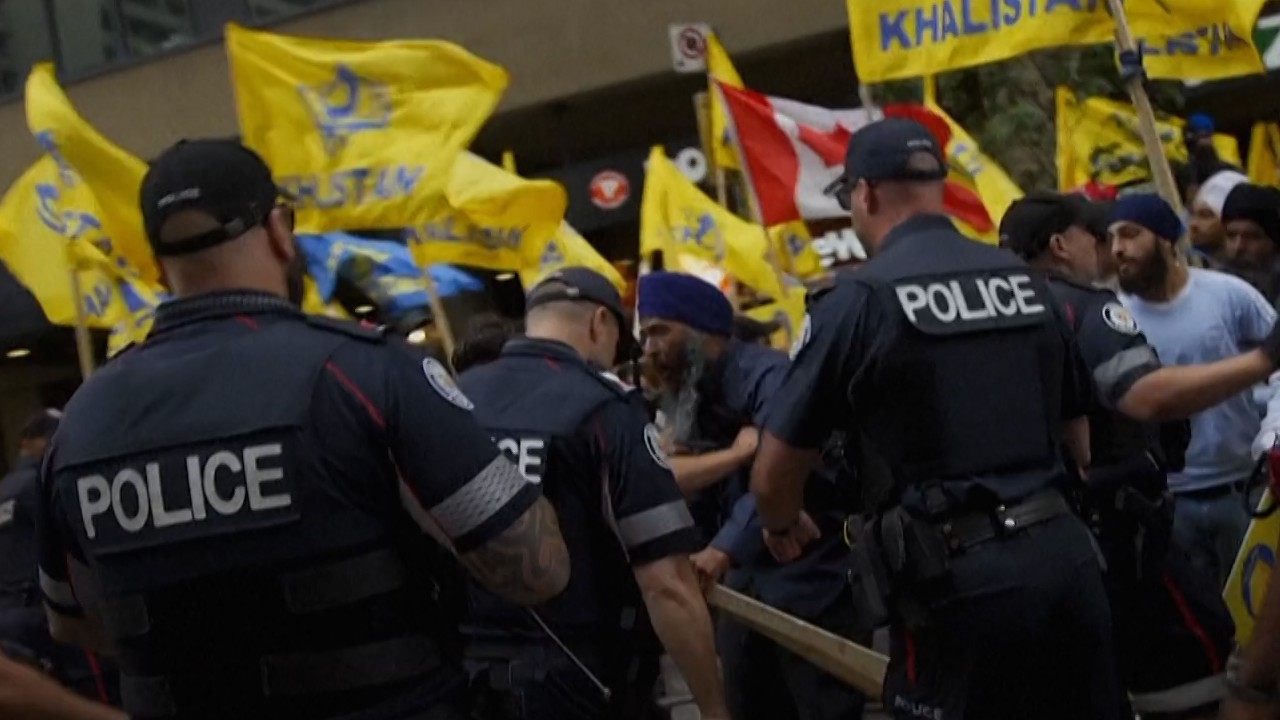India-Canada killing fallout: Sikh diaspora fear for their safety as Khalistan gets ‘disproportionate’ attention

The Canadian citizen was a known Sikh separatist who had pushed for a symbolic referendum on the idea of Khalistan among Canada’s Sikh population, and also appeared on the Indian Home Ministry’s list of terrorists.
India-Canada ties going ‘south rapidly’ amid row over killing of Sikh separatist
India-Canada ties going ‘south rapidly’ amid row over killing of Sikh separatist
Canada is home to the largest Sikh population outside India, and the Khalistan issue flickers and flares among parts of the community, sporadically souring relations between the two countries.
But whispers of Khalistan among the Sikh diaspora have become louder in recent years, community members say. It attaches readily to the identity politics of young, proud members of overseas communities who closely watch affairs in Punjab, a state that conjures a folkloric loyalty even among those who have never visited.
Support for Khalistan was on the wane, according to Gurharpal Singh, an emeritus professor of Sikh and Punjab studies at SOAS University of London.
“But it seems to have spiked a bit in the last three years, partly because of events in India,” he said.
Amritpal was found after a month-long manhunt involving thousands of paramilitary soldiers and the suspension of mobile internet services in parts of Punjab.
His arrest led to demonstrations and scuffles outside the Indian consulate in San Francisco, as well as the country’s high commissions in the United Kingdom and Canada.
Sikhs make up less than 2 per cent of the population of India, but are a majority in the northwestern state of Punjab.
Opinion: Canada-India row over murdered Sikh complicates West’s bid to counter China
Opinion: Canada-India row over murdered Sikh complicates West’s bid to counter China
Rancour still lingers among the community from the 1984 deadly assault by Indian troops on the holiest site in Sikhism – the Golden Temple – in Amritsar.
‘Operation Blue Star’ aimed at taking out Khalistani militants who had fled inside the temple. Hundreds died, Indian authorities said, in what they described as a legitimate security operation. Sikhs said the true number of dead was actually in the thousands after what they saw as a ruthless assault on the heart of a minority faith.
Four months later, then-prime minister Indira Gandhi, who had ordered the storming, was killed by her Sikh bodyguards in an act of revenge. A year after the temple raid, an Air India flight travelling from Canada to India was bombed off the Irish coast, killing all 329 people on board, a crime Canadian authorities attributed to Sikh separatists seeking vengeance.
Since then, “the relationship between India and Canada has been difficult”, Gurharpal Singh said.
Modi’s avowedly Hindu-centric agenda has also revived anxieties among minority communities, experts say.
“The target of the Modi government has been the largest minority community in this country, the Muslims,” said Jagrup Singh Sekhon professor of political science at Guru Nanak Dev University in Punjab, India.
“That is not being received well outside India, particularly within some parts of the Indian community,” he said, warning of a sense of “agitation” among all Indians who are not Hindu.
Domestic issues, global outcomes
Experts say it is a minority of the Sikh community that is actively advocating for Khalistan.
Peaceful demonstrations are overlooked, and incidents of communal disturbances are often hypercharged into larger controversies, largely on social media and by Indian news networks, which amplified perceived threats to the nation.
“Most people are not participating in this movement, they are more busy with their roji roti (daily lives),” said Jagrup Singh Sekhon, the political-science professor. “The voice of a few is being disproportionately amplified in Canada and India.”
Public demonstrations in Western countries for Khalistan and reports of conflicts between Sikhs and supporters of Modi’s Bharatiya Janata Party do not play well in the Indian media, Gurharpal Singh added.
“The Indian media is highly supercharged these days in defending India’s interests,” he said. “As a result of this, the government feels compelled, I think, to act.”
Experts suggest that domestic issues within India might be causing tensions to spill over into diaspora communities.
Can India’s Congress turn tables on Modi’s BJP on back of successful state polls?
Can India’s Congress turn tables on Modi’s BJP on back of successful state polls?
Punjab, once considered the prosperous breadbasket of India, has been facing an economic decline in recent decades in congruence with a slowdown in the country’s agricultural sector.
“This has led to a large outflow of population overseas, especially the young,” Gurharpal Singh said. “Many of these people were influenced by events in the last three or four years, especially the farmers’ movement which was prominent in Punjab.”
On Tuesday, India’s Foreign Minister Subrahmanyam Jaishankar accused Trudeau’s government of not taking action against extremists living in Canada because it was politically inconvenient, despite threats to the safety of Indian diplomats living there.
But the case for India to answer appears strong. The US ambassador to Canada David L. Cohen confirmed on Sunday there was “shared intelligence among Five Eyes partners” which led to Trudeau’s allegations.
Fear, rumours and violence
For Sikhs living across the world, the killing has stirred fears of potential violence re-emerging in their communities.
Rumours over the causes of death of a handful of vocal Khalistanis in the UK – who may have been linked to Nijjar – are rife.
“People are suspicious and talking a lot, especially in the gurdwaras which are known to be more pro-Khalistan,” said a Sikh based in west London, where tens of thousands of Sikhs live.
“People get very worked up over the issue,” the person said, requesting anonymity fearing reprisals.
Sydney-based Amar Singh, who runs the Sikh-led charity organisation Turbans 4 Australia, said he was starting to see alarming signs of community tensions.
“There have been a lot of threatening phone calls coming from private numbers, even I’ve had a couple of those and I’ve reported them to the police,” he said. “There have been some death threats to some other community leaders too, saying ‘you’re Khalistani, and you have to watch your back’.”
Amar referred to a number of incidents, including one in 2021 when men armed with bats and hammers attacked four Sikh students in western Sydney over the escalating farmers protests in India.
“I’m neutral on the Khalistan issue,” Amar added, an attitude reflective of large parts of the community.
“But I do believe that every community has a democratic right to believe in what they believe in, and certainly don’t endorse any violence,” he added. “There is a lot of hate that is happening within the communities.”







